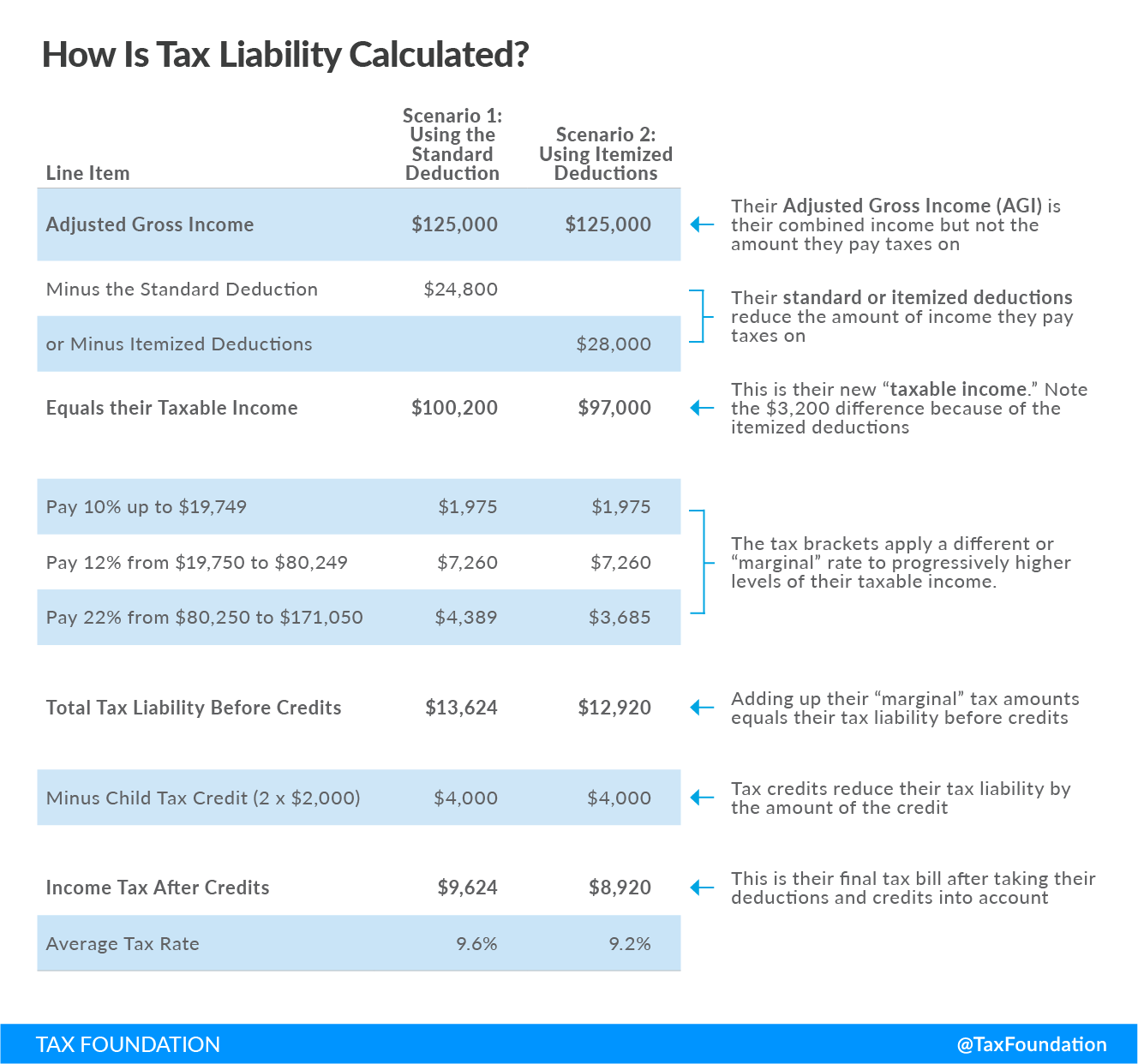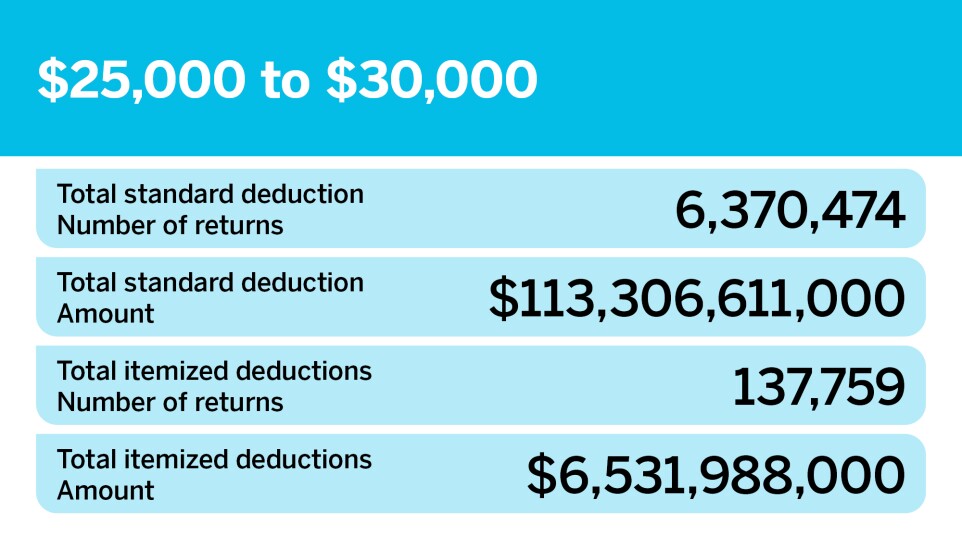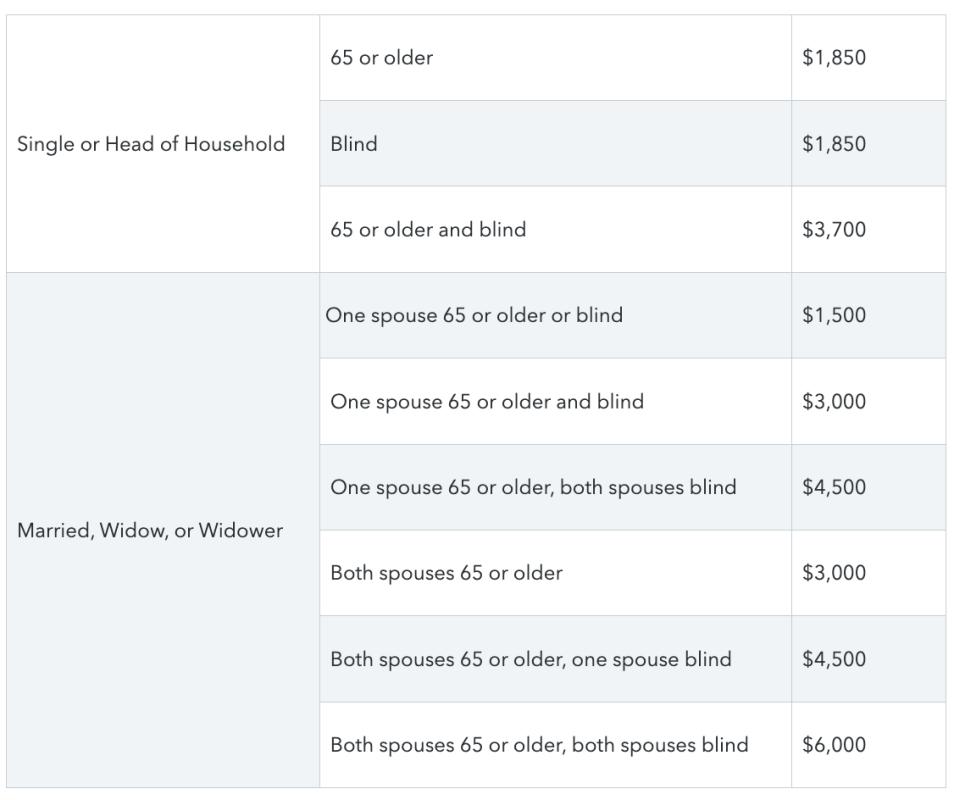How your residency status affects your FEIE Standard Deduction eligibility
Wiki Article
Comprehending the Foreign Earned Income Exclusion and Its Influence on Your Common Deduction
The Foreign Earned Income Exemption (FEIE) offers substantial advantages for expatriates, permitting them to leave out a section of their foreign-earned revenue from united state tax. Nonetheless, asserting the FEIE can make complex one's tax situation, particularly relating to the common deduction. Comprehending this communication is crucial for individuals living abroad. As expatriates navigate these intricacies, they should think about exactly how their choices affect their general tax liability. What techniques can they employ to enhance their monetary results?What Is the Foreign Earned Earnings Exemption (FEIE)?
The Foreign Earned Revenue Exemption (FEIE) acts as an essential tax obligation benefit for united state residents and resident aliens working abroad. This provision allows qualified individuals to leave out a substantial section of their foreign-earned income from united state tax, effectively minimizing their total tax obligation problem. The FEIE aims to alleviate the economic stress on migrants and motivates Americans to seek job opportunity in foreign markets. The exclusion relates to salaries, wages, and professional fees gained while residing in an international country. The optimal exemption quantity is adjusted yearly for inflation, ensuring that it continues to be pertinent to current financial conditions. By utilizing the FEIE, expatriates can preserve more of their earnings, fostering monetary stability while living overseas. In general, the FEIE plays an essential duty fit the monetary landscape for Americans abroad, helping with a smoother change to global work settings and promoting economic involvement on a global range.Qualification Demands for the FEIE
Qualification for the Foreign Earned Earnings Exclusion (FEIE) is contingent upon meeting particular requirements established by the Irs (INTERNAL REVENUE SERVICE) Mainly, individuals must be united state people or resident aliens that gain revenue while residing in a foreign country. To certify, they have to please either primary tests: the Physical Presence Test or the Authentic House Examination.The Physical Presence Examination requires people to be literally present in a foreign country for at the very least 330 complete days within a 12-month duration - FEIE Standard Deduction. On the other hand, the Bona Fide Residence Test necessitates that individuals develop residency in a foreign nation for a continuous duration that consists of an entire tax year
Furthermore, the revenue needs to be stemmed from individual services performed in the foreign country. Meeting these needs allows taxpayers to omit a significant part of their foreign-earned income from united state taxation, thereby minimizing their total tax obligation liability.
How to Declare the FEIE

To start the procedure, people need to gather records that verify their foreign earnings, such as pay stubs, tax obligation returns from foreign countries, and any type of relevant employment agreement. It is essential to assure all earnings declared under the FEIE is earned from international resources and fulfills the required thresholds.
Additionally, taxpayers should consider filing deadlines and any type of possible expansions. Claiming the FEIE properly not just assists in decreasing tax obligation however likewise guarantees conformity with internal revenue service regulations. Appropriate documents and adherence to standards are vital for an effective insurance claim of the Foreign Earned Earnings Exclusion.
The Communication In Between FEIE and Basic Deduction
The communication in between the Foreign Earned Income Exclusion (FEIE) and the conventional reduction is a crucial facet of tax planning for expatriates. Comprehending the basic principles of FEIE, together with the restrictions of the standard deduction, can greatly impact tax obligation declaring strategies. This area will discover these components and their implications for taxpayers living abroad.FEIE Basics Described
While many migrants look for to reduce their tax obligation concern, comprehending the interaction in between the Foreign Earned Income Exclusion (FEIE) and the common deduction is vital. The FEIE permits U.S. people and resident aliens living abroad to exclude a certain quantity of international made income from U.S. tax. This exemption can substantially reduce taxed earnings, potentially affecting eligibility for various other reductions, such as the standard reduction. Incredibly, individuals who assert the FEIE can not likewise take the conventional deduction versus the omitted income. As an outcome, expatriates should thoroughly evaluate their complete income and deductions to enhance their tax obligation circumstance. Recognition of these interactions can lead to more enlightened monetary choices and far better tax techniques for expatriates steering via their one-of-a-kind scenarios.Criterion Reduction Limitations
Understanding the constraints of the common deduction in regard to the Foreign Earned Revenue Exclusion (FEIE) is vital for migrants maneuvering their tax obligation obligations. While the FEIE enables certifying people to omit a specific quantity of foreign-earned revenue from U.S. taxation, it can influence the typical deduction they are eligible to insurance claim. Particularly, taxpayers that declare the FEIE can not also claim the common reduction on that omitted earnings. Furthermore, if a migrant's overall income falls listed below the common check deduction limit, they might not benefit from it in all. This interaction demands cautious planning to optimize tax benefits, as underutilizing the conventional reduction can lead to greater gross income and enhanced tax obligation. Comprehending these constraints is vital for reliable tax obligation method.Tax Obligation Declaring Ramifications
Maneuvering the tax filing effects of the Foreign Earned Earnings Exclusion (FEIE) requires cautious consideration of how it interacts with the common reduction. Taxpayers using the FEIE can leave out a substantial part of their foreign-earned earnings, yet this exclusion affects their qualification for the typical deduction. Particularly, if an individual claims the FEIE, they can not additionally claim the basic deduction for that revenue. This can cause a lower general tax responsibility but may make complex the filing procedure. Furthermore, taxpayers need to ensure compliance with internal revenue service requirements when submitting Type 2555 for the FEIE. Understanding these communications is vital for optimizing tax obligation benefits while staying clear of prospective pitfalls in the declaring procedure. Cautious planning can make best use of you could try this out advantages and lessen obligations.Potential Tax Obligation Effects of Utilizing the FEIE
The Foreign Earned Income Exclusion (FEIE) supplies significant tax obligation advantages for united state residents working abroad, yet it also includes possible ramifications that necessitate cautious factor to consider. One major consequence is the influence on eligibility for sure tax credits and deductions. By choosing to make use of the FEIE, taxpayers might accidentally decrease their adjusted gross revenue, which can restrict accessibility to debts like the Earned Revenue Tax Credit score or reduce the quantity of common reduction available.
Additionally, people who utilize the FEIE may face problems when going back to the U.S. tax obligation system, especially worrying the taxes of future income. The exclusion applies just to gained income, implying other revenue kinds, such as rewards or passion, remain taxable. This distinction necessitates precise record-keeping to assure conformity. Ultimately, the FEIE might influence state tax obligation obligations, as some states do not recognize the exclusion and might strain all income gained by their residents, despite where it is earned.
Tips for Optimizing Your Tax Benefits While Abroad
While functioning abroad can be enhancing, it likewise presents unique possibilities to maximize tax benefits. To make best use of these benefits, individuals need to initially identify their eligibility for the Foreign Earned Earnings Exclusion (FEIE) and consider the physical visibility examination or the bona fide house test. Keeping detailed documents of all income earned and expenses sustained while overseas is important. This documentation sustains insurance claims for credit ratings and reductions.Furthermore, understanding the tax obligation treaties in between the United States and the host nation can assist avoid double tax. Individuals need to likewise explore payments to tax-advantaged accounts, such as Website IRAs, which might provide more deductions.

Seeking advice from a tax professional specializing in expatriate tax regulation can supply tailored methods and warranty compliance with both U.S. and foreign tax obligation commitments. By taking these steps, migrants can successfully boost their economic circumstance while living abroad.
Frequently Asked Concerns
Can I Make Use Of FEIE if I Function for an International Government?
Yes, an individual can use the Foreign Earned Revenue Exemption (FEIE) while benefiting a foreign government, offered they fulfill the requisite conditions laid out by the internal revenue service, consisting of the physical visibility or bona fide residence tests.
Does FEIE Apply to Self-Employment Earnings?
The Foreign Earned Earnings Exclusion (FEIE) does use to self-employment earnings, gave the private meets the required needs. Eligible independent people can leave out certifying income made while living in a foreign country from tax.What happens if My Foreign Revenue Goes Beyond the FEIE Limitation?
If foreign revenue exceeds the FEIE restriction, the excess amount may be subject to united state tax. Taxpayers need to report and pay taxes on the income over the exclusion limit while still gaining from the exemption.Can I Claim the FEIE and Make A List Of Reductions?
Yes, individuals can assert the Foreign Earned Earnings Exemption (FEIE) while also making a list of deductions. They should be aware that asserting the FEIE may influence the availability of specific itemized reductions on their tax obligation return.
How Does FEIE Affect My State Tax Obligation Obligations?
The Foreign Earned Income Exemption can lower state tax obligations, as lots of states comply with federal guidelines. However, individual state policies differ, so it's important to speak with state tax laws for details effects on tax obligation responsibilities.The Foreign Earned Income Exemption (FEIE) uses significant advantages for migrants, allowing them to omit a portion of their foreign-earned earnings from U.S. taxes. While numerous expatriates seek to minimize their tax problem, recognizing the interaction between the Foreign Earned Earnings Exemption (FEIE) and the standard deduction is important. Comprehending the limitations of the conventional deduction in relation to the Foreign Earned Revenue Exclusion (FEIE) is important for migrants navigating their tax responsibilities. The exemption uses only to gained revenue, meaning other earnings types, such as dividends or passion, continue to be taxable. The Foreign Earned Earnings Exemption (FEIE) does apply to self-employment earnings, supplied the private satisfies the needed demands.
Report this wiki page